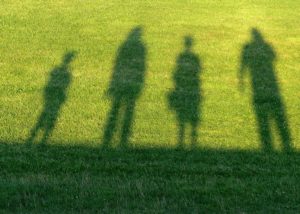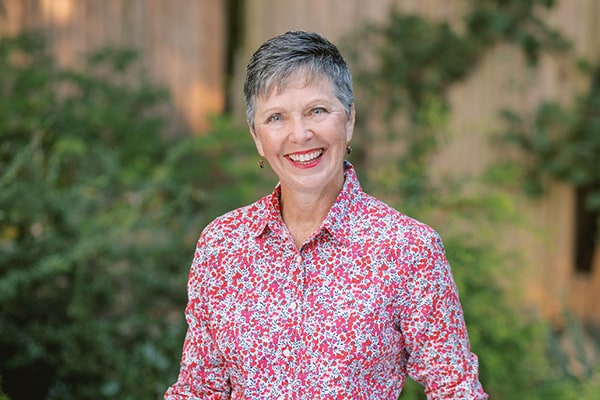The roles we play in our family are familiar and indelible. You know what role you assumed; your birth order may well have played a part in the familial roles you adopted. Roles serve to stabilize or defend against flaws in the family. Returning home for the holidays, adult kids slip back into old roles, despite the familiarity of being the family clown is not required in life outside the family. Family and group roles include the caretaker/peacemaker, the scapegoat/black sheep, the lost (often middle) child, the Golden Child/Hero/Star (often the eldest, also known as the little professor), the mastermind/manipulator and the protected child (sometimes this is the youngest child or a sickly family member.) While these roles serve us and help us to be defended in our family dynamic, they can be a hindrance when we are out and about in the world.
 In group therapy, members explore childhood experiences, personalities, behaviors, and feelings using the group members to stand in consciously or unconsciously for family members. The context of familiar roles along with the detachment of non-familial associations leads to the process of identifying destructive or non-helpful behaviors. Corrective recapitulation is the long-winded way of saying we use the dynamic of the group to heal wounds from childhood, learn new behaviors, and receive validation and empathy. Over time this corrective experience replaces the age-old unmet expectations, hurts, and disappointments.
In group therapy, members explore childhood experiences, personalities, behaviors, and feelings using the group members to stand in consciously or unconsciously for family members. The context of familiar roles along with the detachment of non-familial associations leads to the process of identifying destructive or non-helpful behaviors. Corrective recapitulation is the long-winded way of saying we use the dynamic of the group to heal wounds from childhood, learn new behaviors, and receive validation and empathy. Over time this corrective experience replaces the age-old unmet expectations, hurts, and disappointments.
Our families were the crucible in which we were tested and shaped. Whether we look back on childhood with fondness, antipathy, or even indifference, families leave a lasting imprint on all the members. Stepping into the group dynamic offers an opportunity to be a member of a family where each member can be heard, understood, and accepted without the so-called baggage of being related to each other. In group therapy, we learn from one another as we heal.
In her 1936 work of non-fiction, Not Under Forty, Willa Cather wrote:
“One realizes that even in harmonious families there is this double life: the group life, which is the one we can observe in our neighbor’s household, and, underneath, another — secret and passionate and intense — which is the real life that stamps the faces and gives character to the voices of our friends. Always in his mind each member of these social units is escaping, running away, trying to break the net which circumstances and his own affections have woven about him. One realizes that human relationships are the tragic necessity of human life; that they can never be wholly satisfactory, that every ego is half the time greedily seeking them, and half the time pulling away from them.”
Cather captures the humor, sweetness, and anguish that is endemic in the family in which we were raised. Our family dynamics are inextricably woven into our sense of self and highlighted by attachment patterns. Using self-work applied to new relationships, we begin to untangle the threads of our child-self and our adult-self. Group therapy offers new relationships to reweave the fabric of self.
More on Willa Cather can be found at Brain Pickings with Maria Popov.

